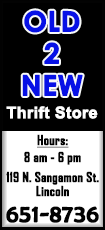|
 The Swiss drugmaker also dismissed speculation it was looking to
unload its diabetes care unit, saying it was "committed" to the
business. The Swiss drugmaker also dismissed speculation it was looking to
unload its diabetes care unit, saying it was "committed" to the
business.
Core earnings per share this year are now forecast to grow broadly
in line with a low- to mid-single-digit sales rise, the company
said.
That contrasts with 2016 when core earnings per share rose 5 percent
to 14.53 Swiss francs ($14.66), while sales grew 4 percent in
constant currencies to 50.6 billion francs.
The drugmaker's three cancer blockbusters Rituxan, Herceptin and
Avastin, which account for annual sales of more than 20 billion
Swiss francs, face impending competition from so-called biosimilar
copies.
The first copies of Rituxan and Herceptin could arrive in Europe
later this year.
Consequently, Chief Executive Officer Severin Schwan said he has
dialed back 2017 profit growth expectations on the grounds that he
must invest in new products including cancer immunotherapy Tecentriq,
Cotellic for skin cancer and lung cancer drug Alecensa to fill the
void.
"We're going through a transition of our portfolio but the good news
is, we can overcompensate with the launch of new medicines," Schwan
said on a conference call.

Roche shares were up less than 1 percent at 0840 GMT (03:40 a.m.
ET).
Analysts noted this was the first time in three years that Schwan,
an Austrian who has led Roche since 2008, has not made a more
bullish prediction for margin expansion.
"Biosimilars will hit Roche in the current year in Europe and then
in 2018 in America in a big way, putting Roche under pressure to
keep up new pipeline news and successful drug launches," Michael
Nawrath, a Zuercher Kantonalbank analyst, wrote in a note to
investors.
Schwan played down the threat posed by U.S. President Donald Trump's
call for drugmakers to cut prices and invest more in the United
States, arguing that innovative companies would still be rewarded
and pointing out Roche's big U.S. presence via its Genentech unit.
Core net income in 2016 rose to 12.7 billion francs, Roche said,
compared with the 12.8 billion franc average estimate by analysts in
a Reuters poll.
[to top of second column] |

Roche proposed raising its dividend to 8.20 francs per share, below
the 8.45 franc average estimate in the poll.
Sales of Tecentriq, Cotellic and Alecensa added 400 million Swiss
francs to sales, and Schwan expects that figure to grow
significantly.
DIABETES COMMITMENT
He anticipates Ocrevus, Roche's new multiple sclerosis medicine, to
be approved by the U.S. Food and Drug Administration in March after
it was delayed from December. First sales are set for April.
Overall, Roche reported that sales in its main drugs business rose 3
percent to 39.1 billion francs, while diagnostics sales added 7
percent to 11.5 billion francs.
Roche's diabetes care business, part of the diagnostics unit,
continued to face price pressure, especially in the United States.
Still, Schwan remains committed to the business.
"We are well positioned in this segment, where we are the market
leader," Schwan said. "It's a difficult situation we are going
through but we remain committed to this business."
($1 = 0.9903 Swiss francs)
(Additional reporting by Ben Hirschler; Editing by Michael Shields
and Louise Heavens)
[© 2017 Thomson Reuters. All rights
reserved.] Copyright 2017 Reuters. All rights reserved. This material may not be published,
broadcast, rewritten or redistributed.
 |